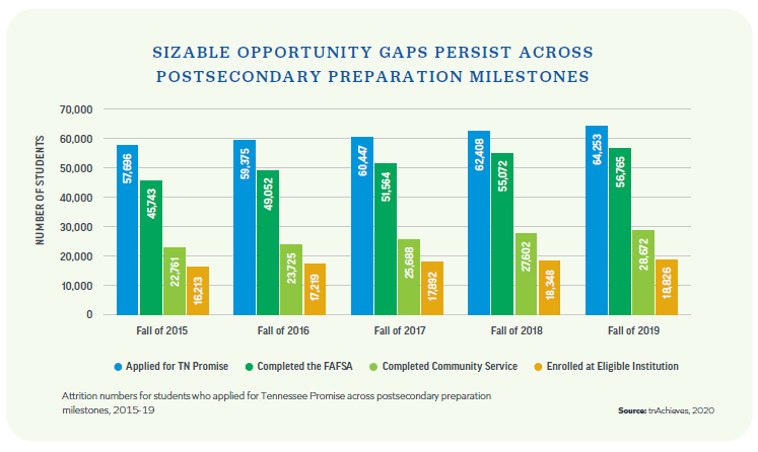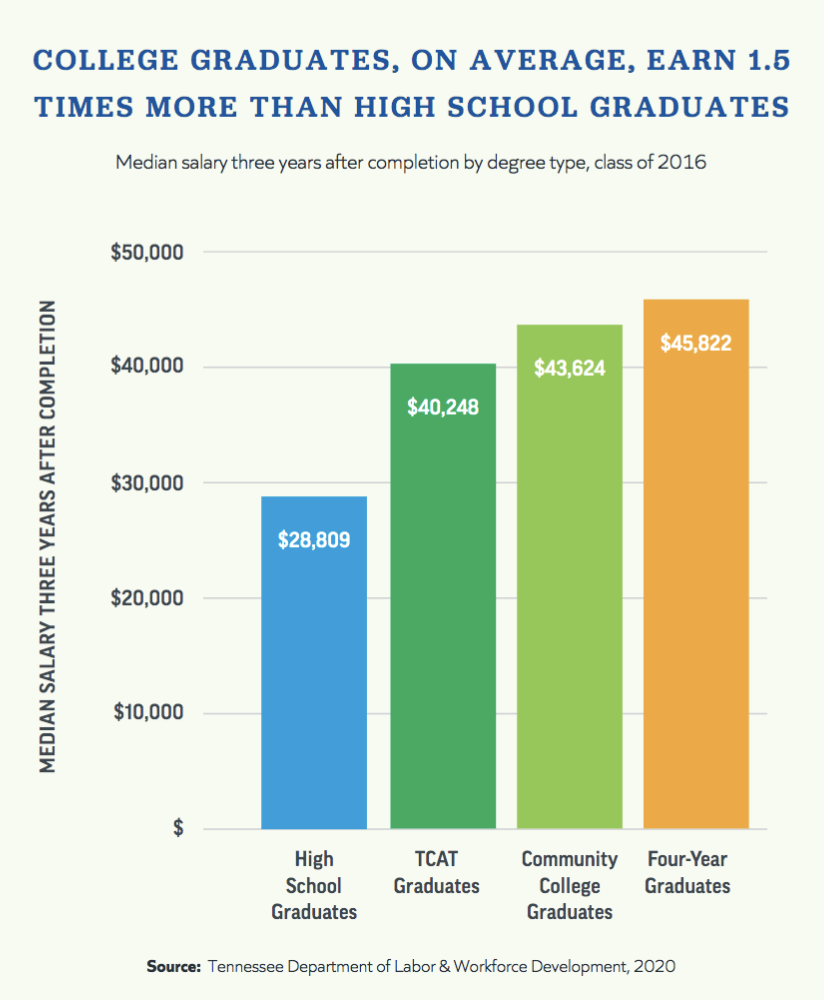
For about 40 percent of Tennessee high school seniors, their education experience ends after high school graduation. This rate is even higher for students of color and students from low-income families. Many of these students not only could succeed in college but also showed the intention to enroll in postsecondary education during their senior year by applying for the Tennessee Promise Scholarship.
Known in the higher education community as “summer melt,” this phenomenon is defined as the drop off of college-intending students over the summer between high school graduation and college enrollment. Each year, about 80 percent of high school seniors apply for Tennessee Promise and complete the FAFSA, but Tennessee is not doing enough to ensure those students are supported to successfully enroll in postsecondary education. In fact, the majority of these seniors do not enroll at an eligible institution in the anticipated fall semester. While some of these students may have enrolled in an out-of-state program or pursued a four-year degree, nearly 20,000 students are disengaging from the education system annually.
In SCORE’s latest report, Stopping Summer Melt: What Students Say And What Tennessee Can Do, we break down how summer melt is impacting our state and highlight impactful, personal stories from Tennessee students who experienced summer melt firsthand.


Summer melt is causing too many Tennessee students to miss out on earning a postsecondary degree or credential. The median income for a class of 2016 high school graduate who did not pursue any form of higher education is less than $30,000 a year. Comparatively, the median income for a postsecondary degree holder from the same graduating class is about $45,000 — approximately 1.5 times more annually.
Completion of a degree or certificate also ensures more skilled individuals are entering the state’s workforce. Tennessee will not have the skilled workforce the state economy needs with the current level of summer melt. Education leaders and policymakers must work together to create a more coordinated pathway of support that identifies at-risk students early in high school and offers them the resources and opportunities necessary for successful transition from high school to higher education.
Based on conversations with close partners and first-hand stories from students around the state, Stopping Summer Melt outlines five key recommendations that address both policy and practice solutions to address summer melt, as well as broader postsecondary issues including persistence and completion. We hope you’ll review the report and its recommendations and consider how you can play a part in stopping summer melt. By addressing summer melt, Tennessee can improve opportunities for all students to achieve success in college, career, and life.
Alexis Parker is SCORE’s senior data and research analyst.
Learn More:
